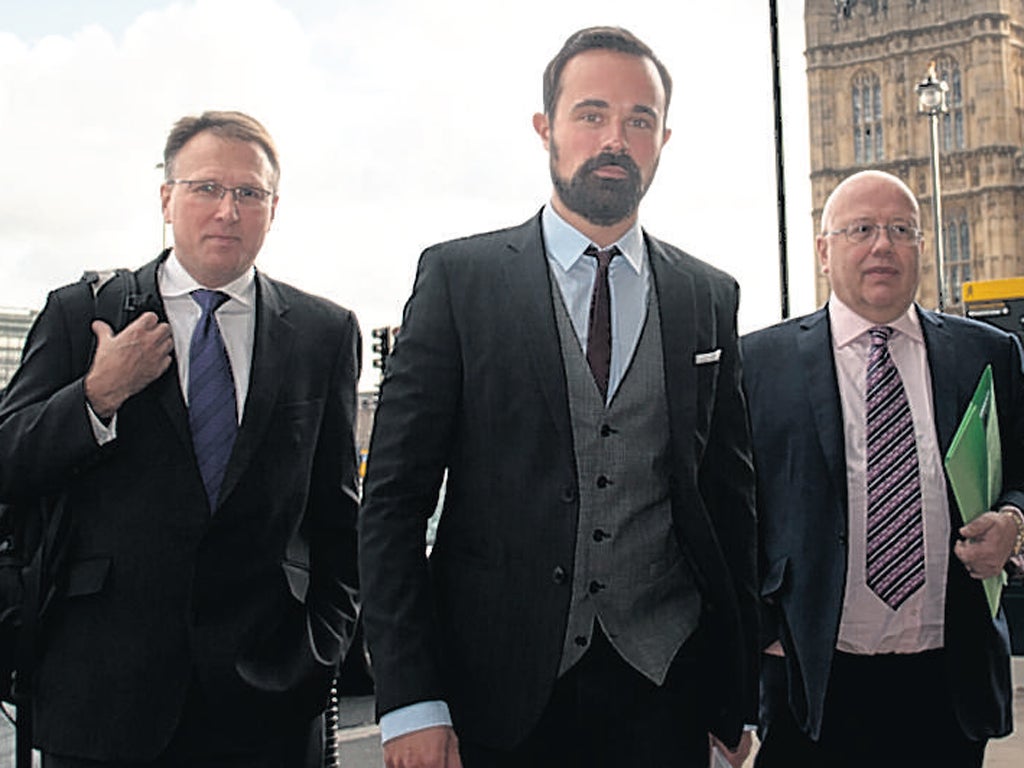PCC is damaging genuine journalism, Lebedev tells MPs

Your support helps us to tell the story
From reproductive rights to climate change to Big Tech, The Independent is on the ground when the story is developing. Whether it's investigating the financials of Elon Musk's pro-Trump PAC or producing our latest documentary, 'The A Word', which shines a light on the American women fighting for reproductive rights, we know how important it is to parse out the facts from the messaging.
At such a critical moment in US history, we need reporters on the ground. Your donation allows us to keep sending journalists to speak to both sides of the story.
The Independent is trusted by Americans across the entire political spectrum. And unlike many other quality news outlets, we choose not to lock Americans out of our reporting and analysis with paywalls. We believe quality journalism should be available to everyone, paid for by those who can afford it.
Your support makes all the difference.The press in Britain is under-regulated but over-legislated, damaging genuine investigative journalism but allowing scandals like phone hacking to go undetected, the proprietor of The Independent told Parliament yesterday.
Giving evidence to a joint committee of MPs and peers Evgeny Lebedev, chairman of Independent Print Ltd, called for the Press Complaints Commission to be fundamentally reformed to restore public confidence in newspapers.
But he also criticised Britain's draconian libel laws for stifling important investigative journalism in the wider public interest. "The Press Complaints Commission has not worked," he told the Joint Committee on Privacy and Injunctions.
"[The industry] is under-regulated because the PCC is not independent, it is not transparent and it is not understandable to the public how it works. It hasn't managed to hold those responsible for phone hacking to account.
"[But] there is too much legislation that prevents newspapers from carrying out investigative journalism. We have got a few cases in our newspaper at the moment that are legitimate investigative cases that we cannot progress with because of the libel laws in this country."
Mr Lebedev said he believed a new press complaints body should have the power to fine newspapers and in certain circumstances even force papers to take out advertisements in rival publications to apologise. "I definitely believe that the new regulator should be a signal of change. It will be very important for it to be independent of the industry.
"There needs to be a feeling from the public – whose trust we're trying to regain – that it is genuinely independent. It needs to be transparent so people can understand how it is set up, how the code of conduct works, who sits on the board, and how they are selected."
Mr Lebedev said being brought up in Russia "where there was no press freedom whatsoever" had made him acutely aware of how important a vibrant and free press was to democracy.
Chris Blackhurst, editor of The Independent, told the committee that he believed any body that replaced the PCC should have a far smaller role for editors. "I think there is recognition among editors, including myself, that the PCC as it is currently set up is not fit for purpose," he said.
"I think that's regrettable but it's a reflection of the fact that the public has lost faith and we as editors can't ignore that. There is a recognition that the PCC is too much under the influence of serving editors and one way to restore trust would be to have a newly constituted PCC where the majority of people taking decisions were lay members who are not serving editors."
Join our commenting forum
Join thought-provoking conversations, follow other Independent readers and see their replies
Comments